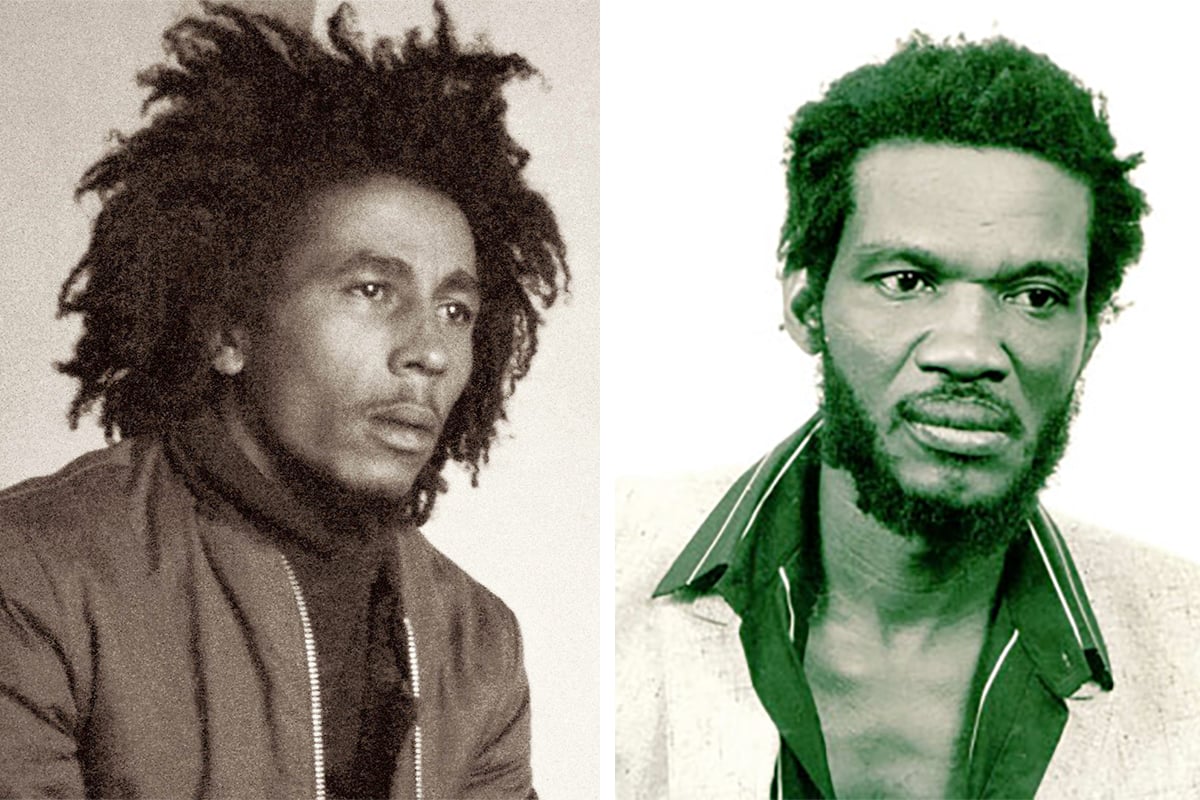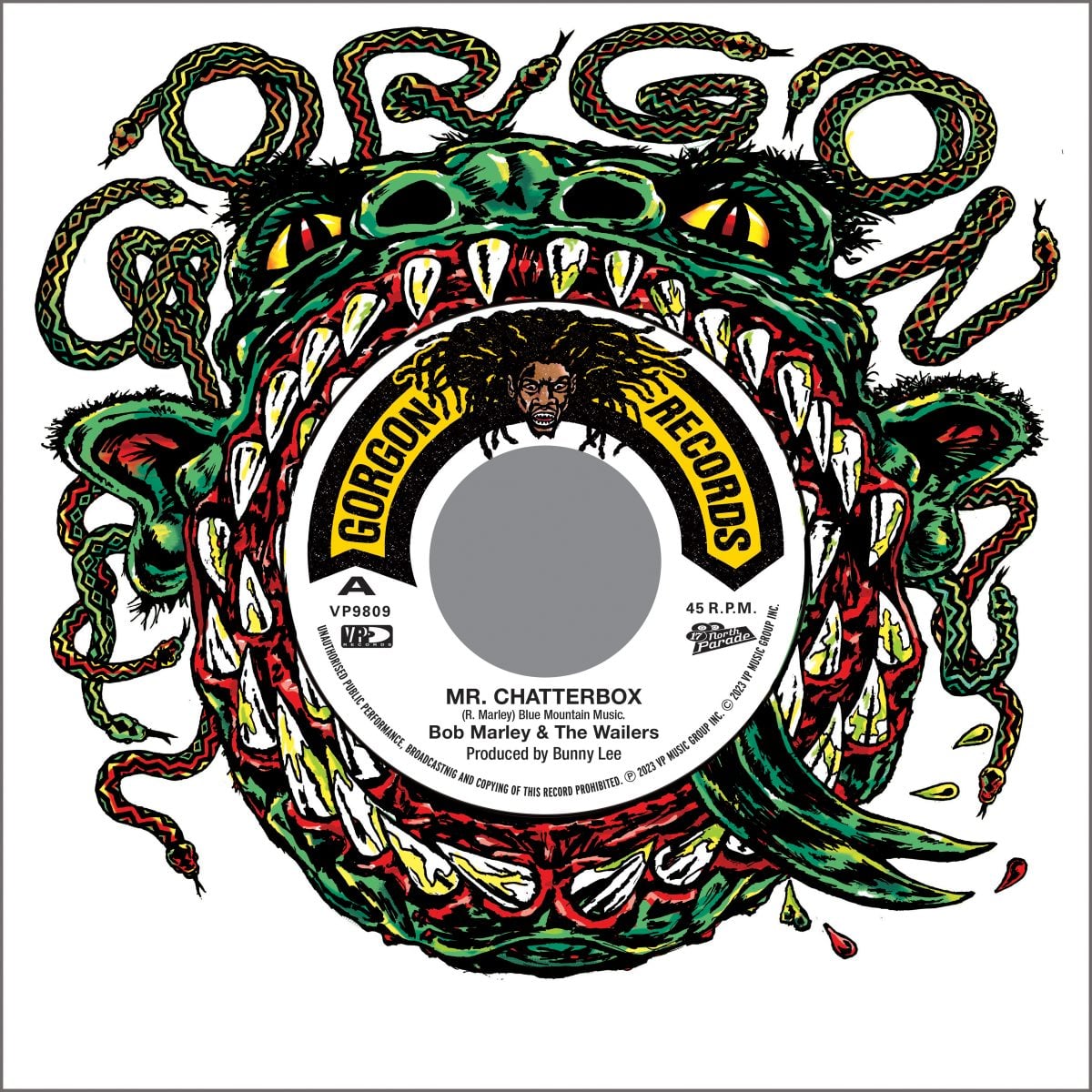‘Mr. Chatterbox,’ Bob Marley’s Diss Track Against Niney The Observer, Released To Streaming For First Time

The full-length version of Mr. Chatterbox, a song Bob Marley recorded in 1970 during a lengthy period of rivalry in which he reportedly beat up his musical compatriot Winston “Niney The Observer” Holness, was officially released for the first time to digital platforms on the Reggae legend’s birthday yesterday.
The “diss” track, which was the only song Bob voiced for the late music producer Bunny “Striker” Lee, was released by Lee’s Gorgon Music via VP Records. The release includes an official lyric video on YouTube, and the song’s instrumental, which was later used in John Holt’s No Love (1970).
According to the release, Mr. Chatterbox was recorded at the iconic Randy’s studio at 17 North Parade in Kingston. “The song, which features Bob Marley on lead and Bunny Wailer singing harmony, was first recorded by the Wailers for Clement ‘Coxson’ Dodd as “Mr. Talkative” as a ska track in 1965,” it noted.
Mr. Chatterbox begins with an intro in which Striker comments to Marley about how well the previous night’s recording session had been, following which he is asked to be quiet, as Niney, the Chatterbox, was approaching. Striker then makes a hasty exit to avoid the supposedly “ultra-talkative” Niney.
“Bob yuh waan si how di session work out. Is a boss when a check it,” he says as Bob acknowledges “Ee-heh”.
“Wha? Is who a come? Is Niney? Wha? Is Mr Talkative dat enuh. Bway, a fraid a him like puss. Bwoy, a wi si yuh. Lata, a gone,” Lee adds as Bob begins singing the first stanza about Niney’s penchant for excessive chattering.
Mr. Chatterbox was issued as a Record Store Day 7-inch single by Gorgon Music last year.
Singer Johnny Clarke covered Mr. Chatterbox in 1982, as part of a tribute album to Bob Marley following his death a year before.
In Bunny Lee’s 2012 documentary titled I Am The Gorgon, Niney, who is regarded too, as one of Jamaica’s “most prolific music producers”, had said that the fight between himself and Marley had lasted for more than four hours, during which he and the Small Axe singer, chased each other all over several streets of Kingston.
“There was some little thing with me and Bob Marley when we catch up, Bob him come ‘round and start pick fight with me. Me and him fight, we was fighting. We fight for nearly four hours. Bunny Lee can tell you. We fight all around. Run up ‘round Beeston Street and Chancery Lane. Wi jus fight. Me an him fight, an wi jus fight. Until m get a cut here. All now mi have dis cut, right here,” Niney had said, touching his left shoulder.
However, a seemingly amused Striker had dismissed those claims, recalling that the brawl, which resulted from Niney being unable to ‘keep his mouth’, could not be classified as a big fight, as Bob won outright.
“It wasn’t really a big fight. Bob did beat him up, caw him chat too much, and wi mek di chune Mr. Chatterbox, the “flying cymbal” creator had said whilst chuckling.
“Bob sing Mr Chatterbox, him an Bunny Wailer: ‘how long will you live, always to receive, and never to give’. Niney always up to no good, most of the time, yuh nuh. Niney think him clever dan everybaddy; him think him is the smartest man, but that is Niney,” he had explained.
In December 2021, The Gleaner, in an article titled Father of the Year Niney Holness has more in store, had noted that Niney, who hails from Montego Bay in St. James, had acquired the nickname ‘Niney’, after losing a thumb in a workshop accident.
The publication had also noted that the “well-documented fight” between Niney and Bob Marley “in the early days over a song” had caused the producer “to end up in the hospital.”
“During his storied career, Niney has worked as an engineer at KG Records, where he began producing with producer Bunny Lee and also for Joe Gibbs as a chief sound engineer, replacing his friend Lee ‘Scratch’ Perry. He also released singles for himself in his role as an artiste, including the successful and the hard-hitting Blood and Fire,” The Gleaner noted.
It noted that from as far back as the early 1970s, Niney, – who went on to receive Jamaica’s Order of Distinction in 2015, was one of Jamaica’s most sought-after producers, who not only played a major role in launching Dennis Brown’s career, but produced music for the likes of Delroy Wilson, The Heptones, Johnny Clarke, Slim Smith, Jacob Miller, Freddie McGregor, Ken Boothe, Junior Byles, Gregory Isaacs, Horace Andy and I-Roy.
“He also continued to record himself on collaborations with Dennis Alcapone, Max Romeo, and Lee Perry. In March 2013, he opened his own Observer Soundbox studio on Lyndhurst Road in Kingston. In 2015, he recorded the single, Children, with Jimmy Cliff, Sly and Robbie, and Errol ‘Flabba’ Holt to raise funds for Cliff’s foundation and a school for autistic children,” The Gleaner noted.

